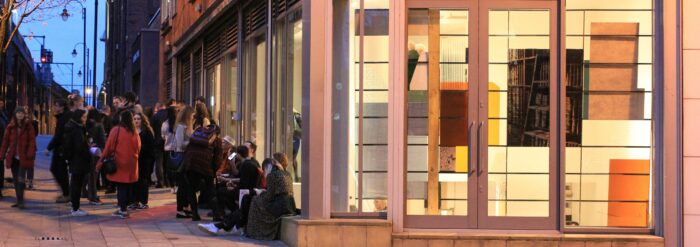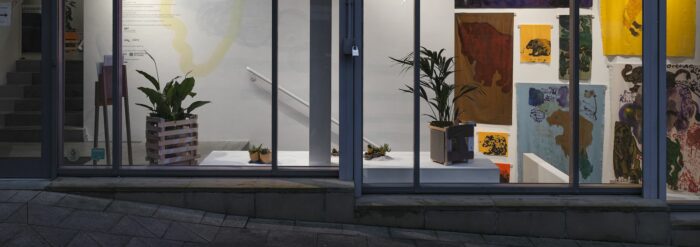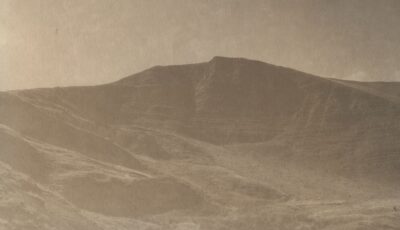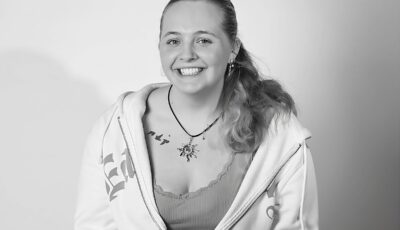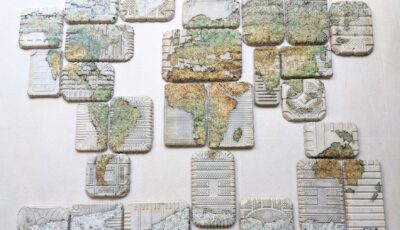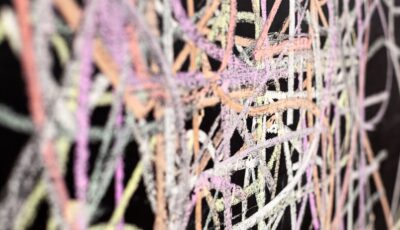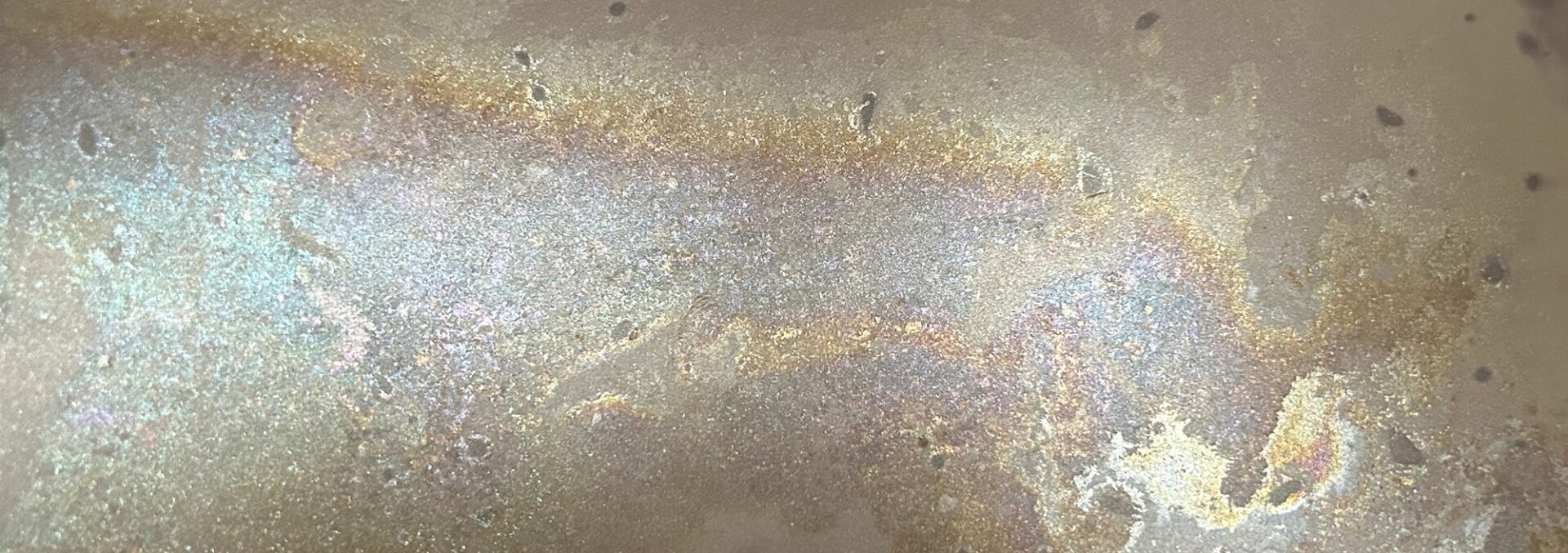
Artists and Sustainability Spotlight: Lizzie King
Posted on 17 September 2024
This month we’ve invited Lizzie King to contribute to our ongoing series Artists and Sustainability Spotlight, where we ask artists to share short responses about their work and how it might relate to climate change.
Lizzie King is an an artist who works with digital and analogue forms of photography, printmaking, and sound, blurring and pushing the lines between the forms to create new works. The narrative of our ‘human centred universe’ is a starting point to exploring the relationship and understanding we have of scientific articles and fictional stories which inform her practice. She enjoys working with and in the environment, engaging and developing more integrated ways in which to create with our surroundings as well as pushing experimentation with local resources to bring about more sustainable processes.
Her work Belonging is currently on show in CATALYST at New Adelphi Gallery, Salford until Friday 10 January 2025. CATALYST celebrates 10 years of the Graduate Scholarship Programme run by the University of Salford Art Collection in partnership with Castlefield Gallery. Learn more here
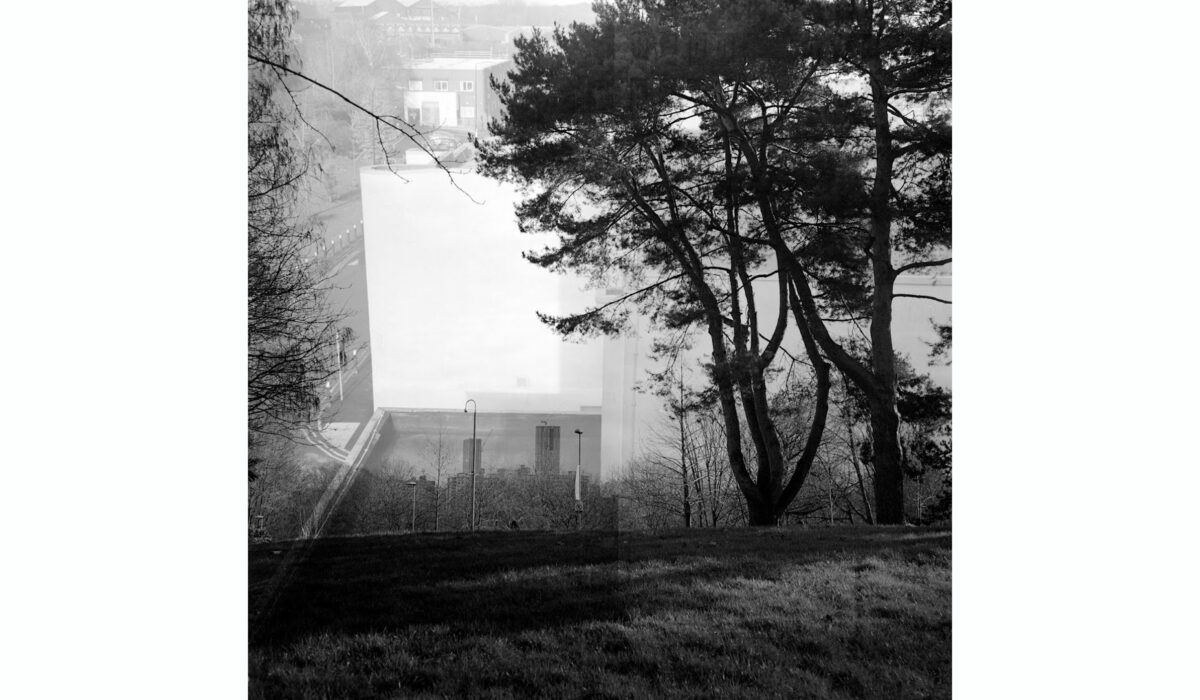
In what ways do you feel your work might relate to issues of climate change and sustainability, in the content of the work, its narrative, conceptually or theoretically? How might it speak to or challenge public discourse?
For the past couple of years my practice has been exploring green spaces and in particular looking at the connection we as humans have with the more than human. All of this work has a connection to climate change and sustainability as when working with green places, it becomes an imperative to talk about the climate emergency and consider sustainability within the work. Some of my work has a more theoretical connection to climate change such as my piece Sonic Maps-The Bats an audio work containing recording of wild bats, as I explore our connection with this species and the spaces the relation inhabits, whereas some of my work is overtly focused on sustainability such as the project Sustaining Photography that I did in collaboration with Gwen Riley Jones. The artwork created for this project was a series of photographs taken on film and developed in food waste based developer. The images were multiple exposures depicting different elements of green areas and photography teach areas in the University of Salford and looked to question how we can imbed a more sustainable way of working and living.
Earlier this year, I was artist in residence for Open Eye Hub Wigan & Leigh. For this project I was looking at the narrative of the change of the landscape at Wigan Flashes which has hugely been altered by the industrial revolution. During the first section of my residency I focused on what is in the ground and the life forms that inhabit this. The flashes have been re-wilded and form part of the Greenbelt. I left photographic paper in the elements to take an exposure of the change in this place, with the most interesting being the capture of the residue of iron oxidising bacteria which has a direct link to the history of the land and the aim to try and care for it.
I hope that my works might challenge discourse by seeing that humans are A species on the earth not THE species. I also hope that by engaging with my work and learning about the process, people might themselves be more engaged with the environment.
With regards to the materials, processes and techniques you use to produce your work, are there any practical decisions you make with regard to climate change and sustainability?
A lot of my work is analogue photographic based. I often use more environmentally friendly developers created with local plants and for my latest series of works I have been forgoing any chemicals and just using the paper so as to reduce my use of chemicals. These have been decisions to try and work in a way fitting to the environment I am working in.
For the zine created for the project Sustaining Photography I wanted to make something that was as sustainable and local as I could manage. We printed the booklet via risograph as it is one of the most sustainable printing methods, the paper was sourced from local suppliers who have good sustainability standards and use recycled pulp, and the thread was non waxed so it will degrade.
I like to use a lot of alternative materials and processes, most of these processes create work that is not archival but I like the idea that the work has its own life and the point isn’t for it to last forever.
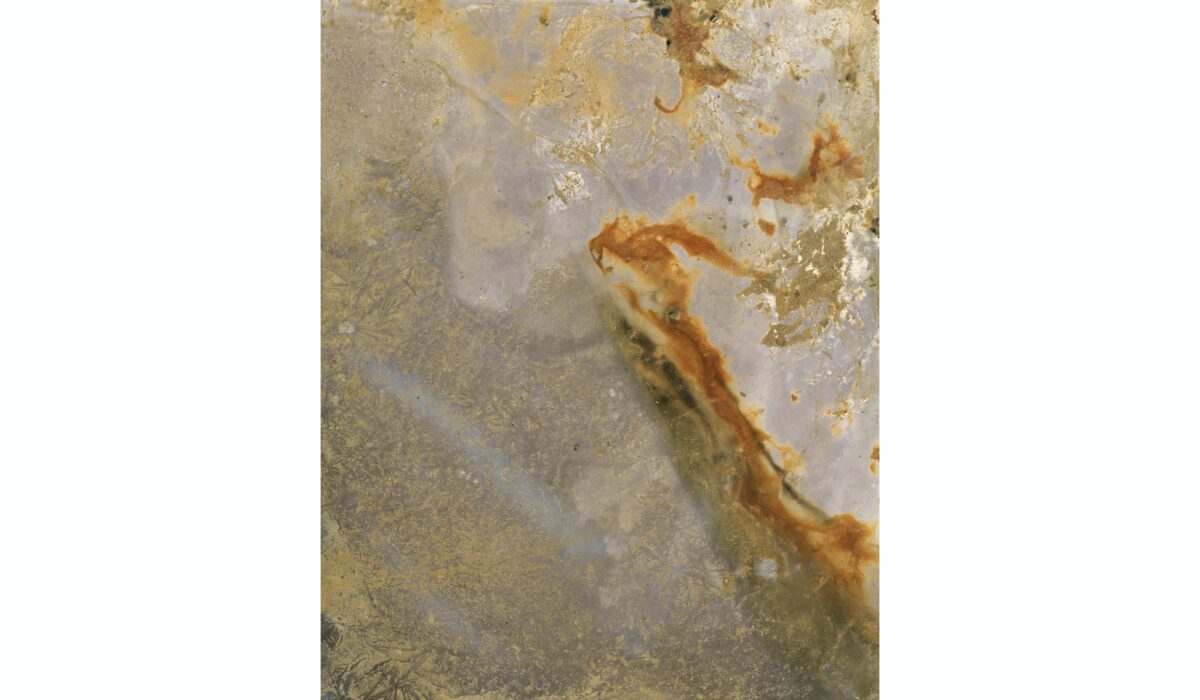
In general, how do you feel galleries, art spaces, artworks and artists, might be able to contribute, what if any role do you feel they can play in a progressive conversation?
There are two things that I’m excited about in this context. The first being exhibitions that are produced in the least wasteful most sustainable way possible. I think reducing plastic and non recyclable paper waste in gallery text and presentation has an exciting range of possibilities to explore and we are starting to see it happen. Also we are seeing this in work presentation, less waste and more reusable infrastructure. This is something that I think is massive and galleries have a huge influence over the industry over how we can all start to work in a more sustainable manner.
Secondly, art and science combinations are really exciting to me. I think that art can really help people to have a progressive conversation. Discussing art can help people to start to question and consider the effects of climate change and what we want to see change. Having artworks that are science informed helps us all to understand a lot more about what’s going on and sometimes more interestingly make us care! Care about what happens to our environment, to our places, and hopefully be willing to do something about it.
Are there any tips or advice, anything you have learnt you might want to share with other artists or our audiences?
Sustainability is for me realising that we are not the only ones, we live on a planet with more species than human. Morton says once you realise this, there is no going back. Do what you can. We should still be making art, still be showing work, still be having moments of amazement about creations. To all these things that we as artists do we should be adding thinking about others and those others aren’t always human.
Links
Website
lizzieking.co.ukImages
Banner:
- Lizzie King, Remnants of Oxidising Bacteria
From top to bottom:
- Sustaining Photography image developed in food waste by Lizzie King & Gwen Riley Jones
- Lizzie King, In Ochre Flash for two weeks
